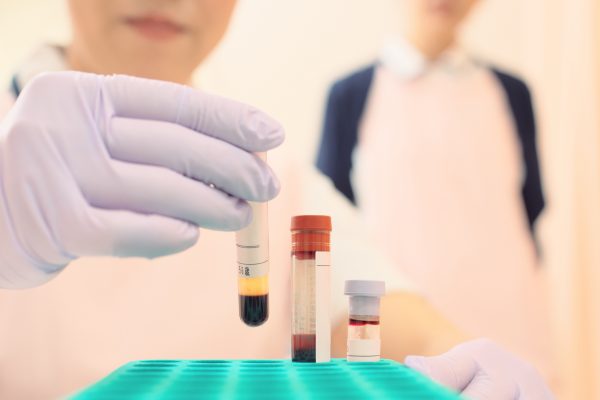
Despite significant advances in recent years, many people living with haemophilia continue to experience bleeding episodes and require frequent intravenous infusions. On 30th May, 2023, encouraging findings were released from the phase 3 BASIS trial, comparing the efficacy of marstacimab to that of factor replacement therapy in these patients. In this trial, marstacimab resulted in a significant and clinically relevant reduction in annualised bleeding rate, supporting the potential of marstacimab to become the first once-weekly non-factor treatment for haemophilia B and the first treatment administered as a flat dose for patients with haemophilia A or B.
Haemophilia is diagnosed in early childhood and impacts more than 400,000 people worldwide. The inability of the blood to clot properly increases the risk of painful bleeding inside the joints, eventually causing joint scarring and damage. For decades, the most common treatment approach for haemophilia A and B has been factor replacement therapy, which replaces the missing clotting factors. However, approximately 25-30% of patients with haemophilia A and 3-5% of patients with haemophilia B are unable to continue taking factor replacement therapies because they develop inhibitors to FVIII and FIX.
Marstacimab is a human monoclonal immunoglobulin G isotype, subclass 1 (IgG1) that targets the Kunitz 2 domain of tissue factor pathway inhibitor (TFPI), one of the body’s natural mechanisms that inhibits the initiation of blood clotting. By targeting the Kunitz-2 domain of TFPI, marstacimab may help to re-establish the balance between bleeding and blood clot formation. The BASIS trial therefore evaluated the effectiveness of marstacimab as a subcutaneous therapy compared to on-demand intravenous therapy and prophylaxis with FVIII or FIX.
The global phase 3 BASIS trial enrolled patients (12 to <75 years) with severe haemophilia A (defined as FVIII <1%) or moderately severe to severe haemophilia B (defined as FIX activity ≤2%), with or without inhibitors. Approximately 20% of participants were adolescents (ages between 12 to <18 years old). The study consisted of a six-month “run-in” observational period in which patients received prophylaxis or on-demand factor replacement or bypass products. The subsequent active period of the study encompassed one year of prophylactic therapy with marstacimab, with a loading dose of 300 mg administered subcutaneously, followed by a maintenance dose of 150 mg subcutaneously once weekly. A dose escalation to 300 mg once weekly was also a possibility if needed. The primary endpoint of the study consisted of the annualised bleed rate (ABR), while also incidence and severity of thrombotic events were examined.
In total, 116 patients with haemophilia were treated with marstacimab during a 12-month period vs. a prophylaxis and on-demand intravenous regimen with FVIII or FIX. In the cohort of patients treated with on-demand factor replacement therapy in the run-in period, marstacimab demonstrated superiority (p< 0.0001) with a 92% reduction in bleeds. The results also showed superiority (p=0.0376) with marstacimab compared to prophylaxis, with a 35% reduction in ABR. The safety profile for marstacimab was consistent with phase 1/2 results and treatment was generally well-tolerated. No deaths were reported and there have been no thromboembolic events or events of consumptive coagulopathy.
The BASIS trial demonstrated that prophylactic treatment with marstacimab resulted in a statistically significant and clinically relevant reduction in ABR in patients with severe haemophilia A and B without inhibitors. These results support the potential for marstacimab to become the first once-weekly non-factor treatment for people with haemophilia B and a treatment option that helps address the diverse needs of patients with haemophilia A or B without inhibitors.
Reference